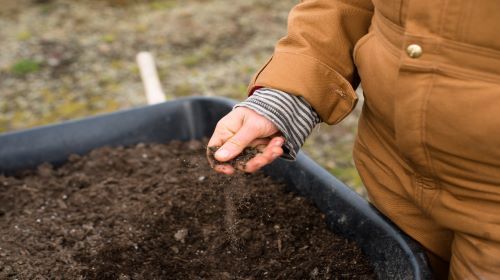
07 October 2022
At the Conservative Party conference this week, Ranil Jayawardena as Secretary of State for Defra, announced that he was focused on growth rather than regulation. He argued during his conference speech that Defra was not a regulatory body but an economic growth department which in turn can help support better soil and environmental management. Meanwhile, former Secretary of State for Defra George Eustice, has argued that the original Environmental Land Management Schemes (ELMs) need to remain in place. The schemes aim to support farmers in improving soil health and provide a smooth transition from older schemes, including a plan to turn all Countryside Stewardship schemes into Local Nature Recovery schemes under ELMs by 2024. Eustice stated that farmers were keen to sign up to the schemes.
Vicki Hird, Head of Sustainable Farming at Sustain, has written a summary of the recent debates over the government’s review of ELMs. The summary includes consideration of concerns that farmers have of the schemes and the level of support needed for them to take action including on soils.
Last week, the Welsh government laid the first Welsh Agriculture Bill before the Senedd (Welsh Parliament). The bill aims to provide new support for sustainable land management by farmers following Brexit. It is hoped that it will ensure farmers can produce food sustainably, mitigate and adapt to climate change, enhance the resilience of ecosystems including soils, and enhance the Welsh countryside.
The Welsh government has paused its roll out of its all-Wales Nitrate Vulnerable Zone and the accompanying regulations for three months, in order to provide further support to farmers and review the regulations it plans to implement. It was hoped the regulations would help reduce runoff of fertilisers and manure from soils and into rivers, causing water pollution.
In Europe, the EU Commission is currently consulting on its Soil Health Law. The consultation is open to the public until 24th October. 5% of responses so far have come from people in the UK. The law aims to specify conditions for a healthy soil, determine options for monitoring soil, and set out rules for sustainable soil management.
According to research, climate change exacerbated the summer droughts across the UK and Europe. Due to the impact of climate change, the likelihood of soil moisture drought was 3 to 6 times more likely. It was also concluded that continued global climate change will result in increased soil moisture drought, which will impact crop yields.
The role of biochar in enhancing soils to sequester carbon has prompted increases in investment in its use. Microsoft and Shopify have, in response to research highlighting the effectiveness of biochar in soil, bought biochar CO2 Removal Certificates as a form of carbon offsetting. Biochar CO2 Removal certificates that fund biochar use by farmers in soils are being sold to companies for up to $200 a tonne.
Following the announcement of the theme for UN World Soil Day, a website and children’s competitions for the day have been published. The day will take place on 5th December, and is focused on ‘soils, where food begins’. Competitions include baking a soil cake, poster drawing and a booklet contest.
Next week, the first ever UK Soils Awareness Week will be taking place. The week plans to excite and inspire public curiosity for soils in the UK. It will stoke interest in UK soils through three accessible elements include a soils quiz, a soil lexicon, and top tips on how people can take action to support healthy soils.